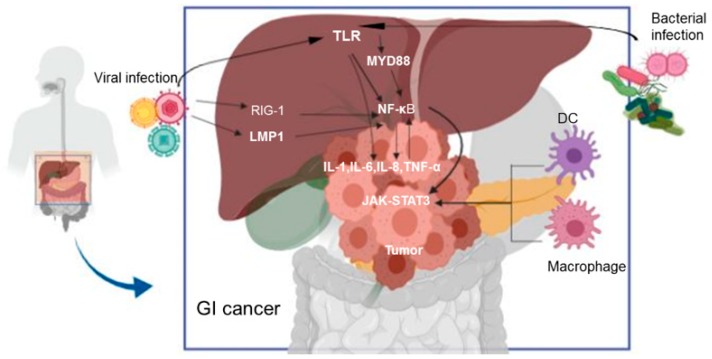Figure 2.
The mechanisms by which pathogens induce gastrointestinal cancer. Nuclear factor-kappa B (NF-κB) is stimulated through virus-induced activation of toll like receptor (TLR), retinoic acid-inducible gene-1 (RIG-1) and Epstein–Barr virus latent membrane protein 1 (LMP1). Bacterial infection also can activate TLR and myeloid differentiation primary response 88 (MYD88) to stimulate NF-κB, which in turn promotes pro-inflammatory cytokines; IL-6, IL-1β, IL-8, tumor necrosis factor-α (TNF-α) and vice versa. The activation of pro-inflammatory cytokines promotes infiltration of dendritic cell, macrophages and other immune cells which activates Janus kinase/signal transducer and activator of transcription 3 (JAK-STAT3). The inflammatory responses and NF-κB activation promotes cell proliferation and cancer initiation. In addition, the cross-talk between (NF-κB) and JAK-STAT3 stimulate cell growth, angiogenesis and thus accelerate tumorigenesis.

